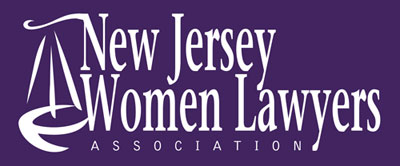A special nonpartisan presentation to address important gender-related considerations in the legal profession, the law, and the political arena.
New Jersey Law Center, New Brunswick
5–6 p.m. Networking and Cocktail Reception
6–8 p.m. Program
Registration: $35 | Students: FREE
Featuring a panel of highly accomplished women, the program will begin with a practical discussion surrounding the conclusions to be drawn from the demographics and trends in the 2016 election cycle as they relate to gender, politics, representation and leadership. Next, the program will focus on the contemporary legal landscape, existing and emerging laws, the current and future composition of the U.S. Supreme Court, and other relevant precedent to better understand how the aims of gender-based equality have been helped and hindered.
The program will conclude by advancing a set of proposed prescriptions for reform, to help to close the gap between “what is” and “what ought to be” with respect to achieving full and equal participation of women in the workplace and the halls of leadership. Throughout the discussion, the panel will provide insight into the best ways to use existing and emerging paradigms to advance the goals of equality.
Plenary Session Panelists Include:
 Peter W. Rodino Professor of Law, Seton Hall University School of Law (Newark) (moderator) |
 NJ Legislative District 37 (D) |
 NJ Legislative District 11 (R) |
 General Counsel and Vice-President for Workplace Justice, National Women’s Law Center |
 Immediate Past President, ABA Partner, Locke Lord LLP (Morristown) |
 Director, Eagleton Institute of Politics, Rutgers University |
 General Counsel, NY Public Library Chair, ABA Commission on Women |
||
About the Plenary Session:
Featuring a panel of highly accomplished women, the program will begin with a practical discussion surrounding the conclusions to be drawn from the demographics and trends in the 2016 election cycle as they relate to gender, politics, representation and leadership. Next, the program will focus on the contemporary legal landscape, existing and emerging laws, the current and future composition of the U.S. Supreme Court, and other relevant precedent to better understand how the aims of gender-based equality have been helped and hindered.The program will conclude by advancing a set of proposed prescriptions for reform, to help to close the gap between “what is” and “what ought to be” with respect to achieving full and equal participation of women in the workplace and the halls of leadership. Throughout the discussion, the panel will provide insight into the best ways to use existing and emerging paradigms to advance the goals of equality.
Co-Sponsored by:
New Jersey Institute for Continuing Legal Education
New Jersey State Bar Association
New Jersey Women Lawyers Association
Seton Hall Law School



